Dear Johnny: Are you normal?
Dear Johnny,
Do you remember I asked if you were good enough?
I have another question for you: Are you normal?
I’m asking because I know you’ll say “no”. This means I can ask, “Why?” I know it’s tricky for you. But c’mon now: Why do you think you’re not normal?
I’m sure you will reply, “I just know I’m not.” I got you there, didn’t I? I know you quite well. After all, you are me 45 years ago.
I know you strongly feel you’re not normal, but it’s hard to explain why. And no one has ever asked how you feel or talked about such things, right?
Well, it’s about time, then. This is one of the thousands of questions that should be asked and answered when you’re 15. I know pretty well what a massive difference this would have made and the costs when it doesn’t happen.
Let’s start by exploring what it means to be ‘normal’.
So, what does it mean to be ‘normal’?
If we can’t answer this, we don’t know how to become normal, right? And more importantly, we won’t know if being normal is desirable or the right thing to be.
Oh, I know, Johhny boy. You’re just sick and tired of feeling different, regardless of what makes you different and whatever it is you feel different from. I can hear you: “Stop it! I just want to be like everyone else, okay?”

But do you really want to be like everyone else?
Well, it’s not possible anyway because everyone else isn’t one thing. True, if you look around where you live, it might seem like most people are the same. They seem to like the same things, want the same things, think the same thoughts, and have the same opinions. Some of them do. Many don’t, but they’re too afraid of not being normal, just like you.
Johnny, you have unique dreams, fears, hopes, and pains. I know you dream of getting away from where you live, living a different life, writing a song or a book that someone may like—preferably so much that they’ll make you indecently rich—and most of all, finding a beautiful girl who loves you deeply and becomes your partner and best friend for life.
Apart from the thing about becoming indecently rich (I can’t guarantee that), all of this will come true. It will take some time, but it will happen. Are you sure you want to give up all of this? Just to become like everyone around you seem to be?
No, I didn’t think so.
Is being ‘normal’ the same as being average?
Perhaps, if we look at it mathematically. However, while we can calculate that the average daily maximum temperature last summer was, say, 15 degrees, how can we calculate what an average person is?
People, indeed, tend to gravitate towards the centre to fit in. And this is what I think you mean when you say you want to be normal: you don’t want to stand out in any way that draws negative attention from anyone.
But if everyone were average, wouldn’t everyone be… mediocre?
I know that you (very secretly) are proud of your talents. I know about your immense desire to spread your wings and fly, to become something, to be someone. It’s not true that you want to be mediocre!
However, we are already touching upon what it really means to be ‘normal’. It’s time to zoom in.

What is a norm?
Norms are a set of expectations about how to be and behave in a specific group of people or culture. They are usually the unwritten laws of the group. If you want to be a group member, you better learn the norms and comply with them because the group will likely punish you if you don’t.
True, different people might have various roles within a group. This means the rules won’t be the same for everyone. But you will be expected to know your role and your place, so watch out.
At the end of the day, to be normal is to follow the norms of the groups you are a member of, whether they are the population of a nation or a village, a football team or a workplace, or a family.
Now, let’s take a break and look at:
The Jante Law
The Danish-Norwegian author Axel Sandemose wrote about the fictitious town of Jante in one of his novels. In Jante, people had to live by a set of norms that Sandemose called the Jante Law:
You’re not to think you are anything special.
You’re not to think you are as good as we are.
You’re not to think you are smarter than we are.
You’re not to imagine yourself better than we are.
You’re not to think you know more than we do.
You’re not to think you are more important than we are.
You’re not to think you are good at anything.
You’re not to laugh at us.
You’re not to think anyone cares about you.
You’re not to think you can teach us anything.
Johnny, I believe you’ve just read about Jante and the Jante Law, leaving you in shocked recognition. Because this is precisely how you feel people are treating each other where you live. Still, this recognition doesn’t help you much because you can’t understand why people should want to behave in this cold, chokingly oppressive way towards each other.
For all it’s worth, Johnny, few of them ever think about it, let alone understand it themselves.
It’s time to dissect a small, rural community, I guess.

Understanding The Village
Thirty-one years into your future, dear Johnny, you will attend a reunion for your class at school. At some point during that evening, one of the girls will say something like:
“Weren’t we lucky to grow up in such a safe and peaceful place?”
And you will think, “What the f*ck is she talking about?” but you won’t say anything, of course. Feeling confused and upset without quite knowing why, you will handle the situation in your default way: You’ll get drunk and then go home.
It’s like you and that girl had grown up in different places. Why? I’ll return to that. Let’s look at the place first, and we can conveniently call it The Village.
Well, it’s about understanding any village
It goes without saying that this is an analysis from my perspective. Or, to be precise, from your perspective, dear Johnny, supplemented with the extra time, knowledge, and experience I’ve had at hand to help me get an overview.
However, I have no reason to say that The Village was worse or better than comparable places, and it’s okay with me if other people see these things differently. Still, I believe that people who at least have felt a bit ‘misplaced’ while growing up in small, rural societies will find something recognisable in this.
So, Johnny, even though our village faces the Atlantic Ocean on the Norwegian coast, I bet the situation isn’t much different in any more or less isolated village anywhere, at least not during the first 3-4 decades after the war.
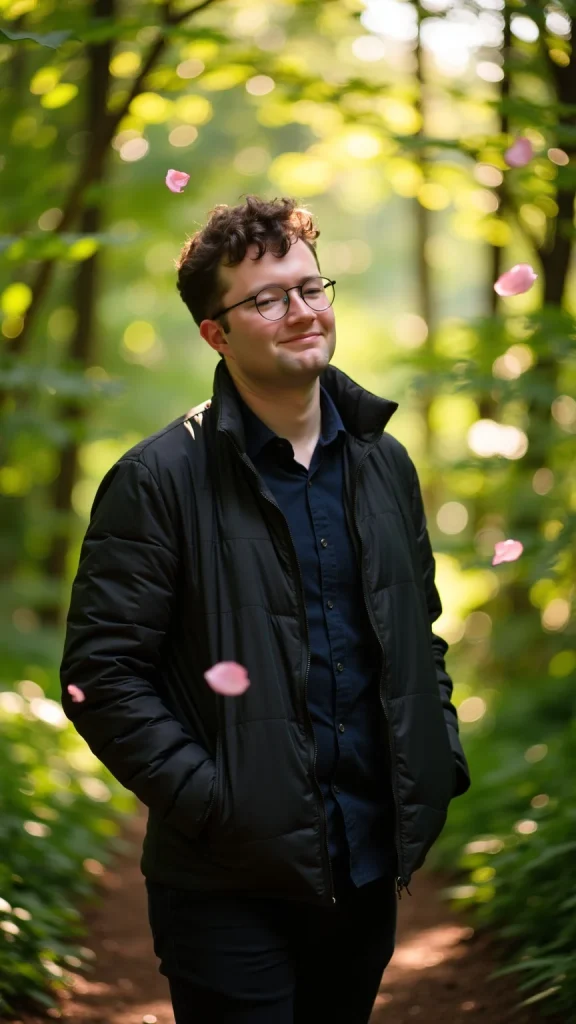
A place where nothing happens
If you went out in our village, Johnny, from your here-and-now in 1980 and turned back time 80 years, you would see quite a few changes. There would be no cars or tractors and no electricity. Few boats would have engines. Most houses would be small, unpainted timber buildings. Take a good look. Then, turn back time another 300 years.
I bet you wouldn’t see many differences between The Village in the years 1600 and 1900. It was a place where basically nothing happened for centuries, except that the herring came into the fjords in more abundant quantities some years.
Everyone made a living by combining farming and fishing.
However, I believe the order of this small society was rattled a little from 1911 on when a herring oil factory was established. Imagine that! Some people could earn money, at least for parts of the year, without slaving on the fields or risking their lives out on the ocean! That must have been unheard of.
A place of no diversity
Everyone was white. Everyone was Christian, at least in the name. LGBTQIA+ what? Is that some kind of strange, foreign alphabet? We should think that such a degree of homogeneity would create an almost paradisical stability with minimum tension and conflict, right?
So when and how does peaceful homogeneity turn into hard conformity pressure? When did this presumed paradise turn ugly?
The truth is that it was likely never a paradise. Homogeneity was never absolute. Human nature hasn’t changed much in the last 80,000 years and usually shows a lot of variety if the conditions allow it. I believe there was social control in place very early on to suppress ‘deviants’, and poverty took care of the rest of people’s adventurousness.

Besides, we did have:
Social hierarchies in this small world
I have never heard of anyone who was particularly rich in The Village’s history, at least not before its small-grade industrialisation in the 1900s. Still, I know that you have noticed social hierarchies even in your time, Johnny and that you struggle to understand them, except that:
- Some families are better than others.
- Some parents’ occupations are better than others.
- Some parents’ political opinions are better than others.
- Some people’s interests are better than others.
- Some areas to live in and around The Village are better than others.
Yes, I know it’s complicated. But you’ve got mainly into it. For instance, a few years ago, when the sons of the local factory’s director gave you a beating because they had seen you touch one of their bikes, it was according to the order of nature. They were at the top of the hierarchy; you were at the bottom. True, you couldn’t even remember you had touched that bike, but such details were irrelevant.
Or sometime before that, when a farmer told you thoroughly off because he didn’t like the local Labour Party’s politics. Of course, he was in his right to dislike you, even though you were only ten or so. After all, your father was a Labour man. Back then, quite a few of the farmers bitterly disliked working people who weren’t landowners for some reason, even though some of their own farms were hardly big enough to make a living from. They couldn’t even find it in them to shop in the same supermarket as the labourers.
Who are ‘in’ and who are ‘out’?
Everybody tries to figure out who they are, to find their identity. It’s not easy for anyone to create their own identity; we tend to seek groups to belong to and identify with. Even where you are, Johnny, some people are fans of English(!) football teams. They like specific types of music (but nothing too unusual, God forbid!). Some are members of the men’s choir (including you). Some are active in the sports club.
Rewind time a hundred years. Nothing like this existed. Who would you identify with if everyone, at least on the surface, were the same? How could you say who you were? The obvious solution was not to focus that much on who you were. Instead, you could focus on who you were not.
People from neighbouring villages, for instance. They were not like us. On the other hand, hadn’t you known they were from a different village, you wouldn’t have seen the difference. Foreigners would have been easier, but very few of the inhabitants of The Village had ever met a foreigner. It seems like you might have had a problem figuring out who you were not as well.
How could you find an identity under such circumstances? Except by starting to pick on the minor differences within your group? I believe this is the moment when the Jante Law is born in a small society.
Fast forward to your time, Johnny. Guess what: the Jante law is still there, stronger than ever. How could it grow so powerful?
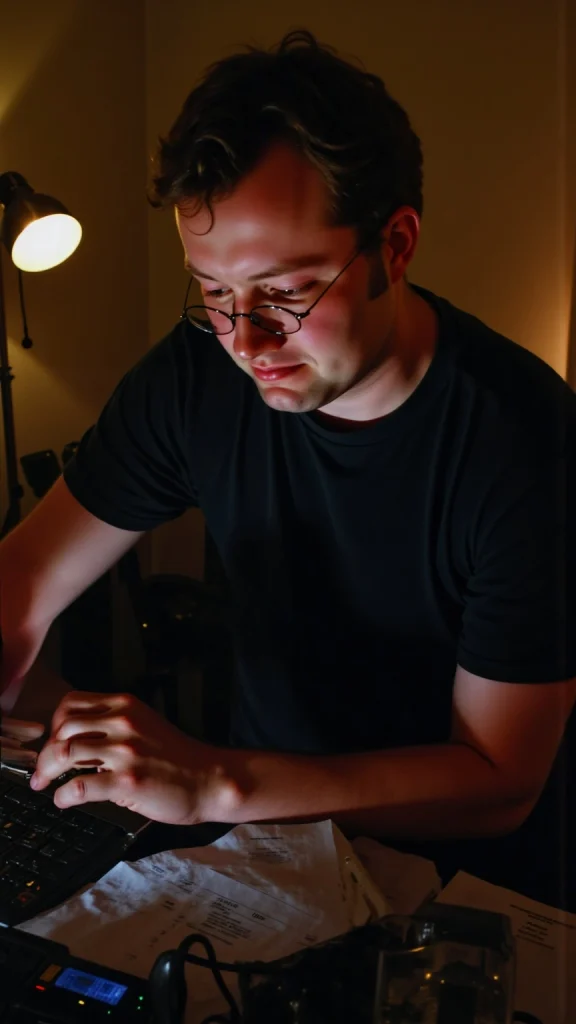
Social control in the absence of law
We’ll have to admit there might be some historical reasons, Johnny.
Travel back in your time machine again, and you wouldn’t get far before The Village had to fend for itself. There wouldn’t be any police presence. No courts of law unless you were up to something big like murder or witchcraft, and few people got away from that alive. The everyday order in The Village, however, just had to be preserved by social control.
Even in your year of 1980, Johnny, the police are rare visitors in The Village. Rare enough to make anyone spot them right away and phone their friends and warn them to stop distilling alcohol in their basement and not go driving after tasting their produce until the uniforms are safely gone again.
You are raised to obey the Law, Johnny. Which law? Oh, you bloody well know not to think you are something special. You do not break the Jante Law. On the other hand, the laws passed by the Norwegian Parliament are considered more a matter of choice. For instance, when it comes to private alcohol production, drunk driving, and fishing salmon when you’re not supposed to.
Over-confidence in the absence of knowledge
Apart from historical reasons, we must mention a human trait that strengthens the Jante Law. You’ll have to wait almost twenty years before you read about this, Johnny, but in 1999, some scientists will describe the Dunning-Kruger effect.
In short, research shows that people with a low skill level rather consistently tend to overrate their skills. No, Johnny, I’m not saying that everyone in your The Village of 1980 is stupid. I’m saying that the Dunning-Kruger effect can amplify the power of the Jante Law.
Imagine a situation where people who haven’t been exposed to much variety or knowledge must deal with someone who isn’t quite average and standard. Let’s say this non-standard rascal has some ideas the Villagers haven’t heard before.
Now, most Villagers would be highly skilled in traditional farming, fishing, and moose hunting. In other areas, however, they would fall dreadfully short. But then the Dunning-Kruger effect kicks in, and the Villagers will know they are right, so right that the creative delinquent is not only wrong but also ridiculous and stupid. Let’s punch his nose a bit, fellas.

The tiny window of normality
I believe all of this, the historical background and human adaption to living in such an environment will narrow the ‘window of normality’ down to almost nothing. Everyone has to fit into a tiny square to, yes, fit in.
Do you remember the girl I mentioned earlier, Johnny, the one from the reunion party you’ll attend later in your life, who had grown up in such a safe and peaceful place? There’s nothing wrong with that girl, of course. She’s okay. It’s just that she was lucky enough to fit into that tiny square. She was normal.
Johnny be good
Oh, you will try a tricky balancing act for a while, Johnny. You will try to balance your desire to be something or someone while being good and not offending The Village. You will try some things out to become more of who you think you can be, and you will feel the rapid current of The Village’s disapproval every time you step into that river.
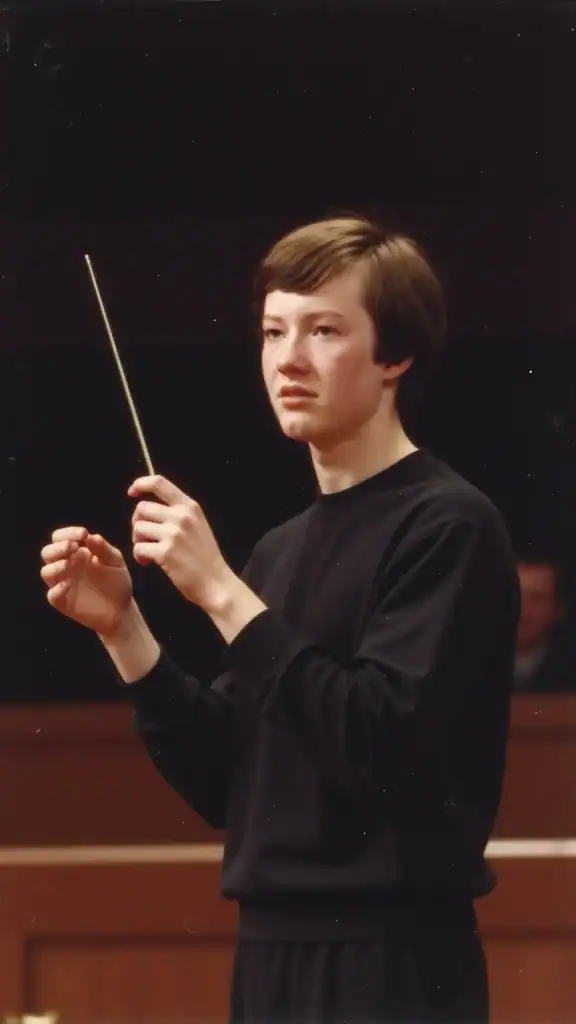
You will learn to keep the rest of your dreams and ambitions deeply secret. You will learn to blame luck every time you get good test results at school. You will learn to keep your mouth shut whenever you know something others don’t. Well, most of the time, and you’ll suffer the consequences when you forget.
You will soon make your first attempts at creative writing, Johnny. There will be small poems and some beautifully naive song lyrics on your notepad, and you will be scared witless that someone might learn about them.
At some point, a couple of years from where you are now, you will realise that you will never be normal in the eyes of The Village without losing yourself entirely. This is when you should run away, Johnny, but you won’t have the courage.
Instead, you’ll think, “If I can never be normal, I’ll show them I can be much worse than they think I am.” You will waste a lot of time in your precious young years playing the role of a party boy, a drunken fool. And you will feel this is more approved by The Village than being yourself because then, at least, you can’t have any illusions that you are better than them.
And indeed, you won’t have any such illusions left. You will enter your adult life convinced you are not good enough and not normal.
Putting normality on trial
I call upon you, Normality, to stand trial before the court of common sense.
As Judge and Prosecutor, I’ll lay this evidence before you:
Hating Jews and reporting them to the Gestapo was normal in Germany between 1933 and 1945. Violence towards coloured people who didn’t ‘know their place’ was normal in the southern United States in the 1950s. In Scandinavia, it was probably (kind of) normal in pre-Christian times to leave sick and disabled children in the forest to die because they had a specific word for such children: útburðr (which means ‘one who is carried out’).
In Johnny’s 1980 version of The Village, it’s normal to speak hatefully and degradingly about gay people, coloured people, people with too much education (they believe they are better than the rest), people who drop out of school (they are stupid), women in general, women with opinions in particular, and apart from this, everyone and everything that fall outside their narrow window of normality.

In fact, it’s not only normal to speak that way, it’s expected. If you don’t, you’re not normal and automatically subject to suspicion and bullying. The case should be clear. Does the Defence have anything at all to say?
Your Honour, the Defence must point out that it’s also normal to look after your children and…
Yes, I know, I know. Enough of that. The verdict is:
Being normal isn’t always the right thing to be
I know you feel hopeless and helpless, Johnny. You’re only fifteen and can’t be expected to do much about your situation. You shouldn’t have to be in this situation in the first place.
However, every adult has the right and duty to test normality. We all have a duty not to accept every norm in our social groups blindly and to decide what’s ethically right and wrong. Failing to do this is lazy and, in the worst case, dangerous.
How many children and teenagers are still lying awake at night, worrying about not being normal and good enough? How many adults, for that part? For how long are we willing to sacrifice individuality, creativity and, well, humanity itself on the old, stinking altar of normality?
Sorry, Johnny, I got a bit worked up there.
I just wanted you to understand:
- How normality comes to be defined in a small society and
- However it’s defined, it’s not necessarily right.
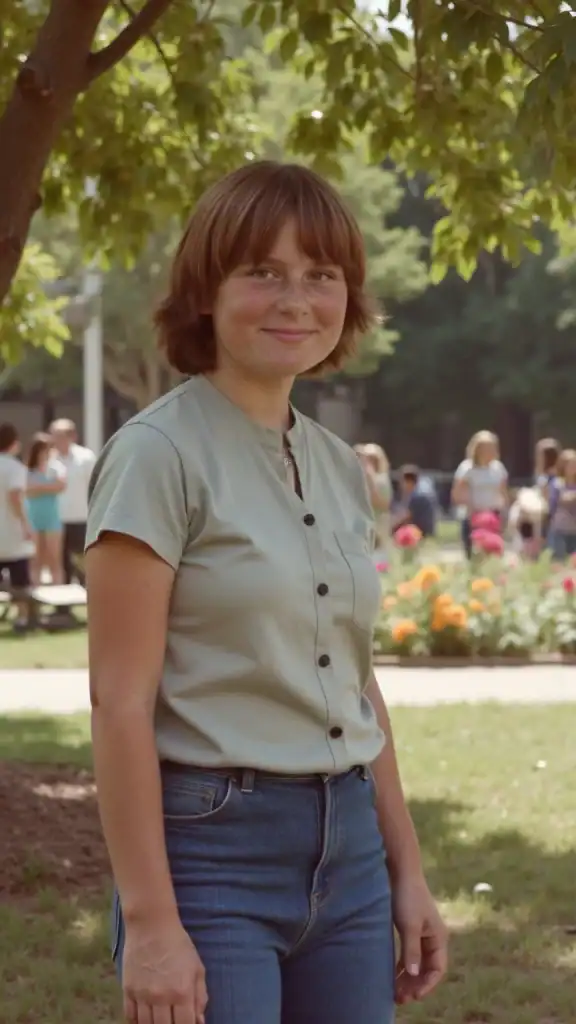
Letters received too late are still better than never
I hoped to send this to you in 1980, Johnny, but it seems that the Royal Mail doesn’t have a working time machine for delivery these days. So when you read this, it is, in a way, 45 years too late. You have already arrived here via the long and winding road of discovering it all yourself.
Still, I believe it’s good for both of us that these words are said between us. Through this letter, we have been together for a short while and have been reminded of the fear and sorrow of not being ‘normal’. We’ve been allowed to feel it, and now we can hopefully let it go.
So Johnny, even though this letter has grown too long already, let’s leave a few words to all the young Johnnys and Hazels out there today who don’t feel normal. They might chance upon reading this in one way or another:
You’re not normal, are you? That’s okay. As long as you’re not harming yourself or anyone else, there’s nothing wrong with you. Be proud of yourself and be strong. Nothing will last forever, including the situation you are in now.
One day, you will find a home where you feel loved and accepted. It’s waiting for you out there somewhere, so please don’t give up.
Love,
Tom
All pictures used in this article are AI-generated illustrations. They all resemble my wife and me at different ages, but they aren’t real pictures.



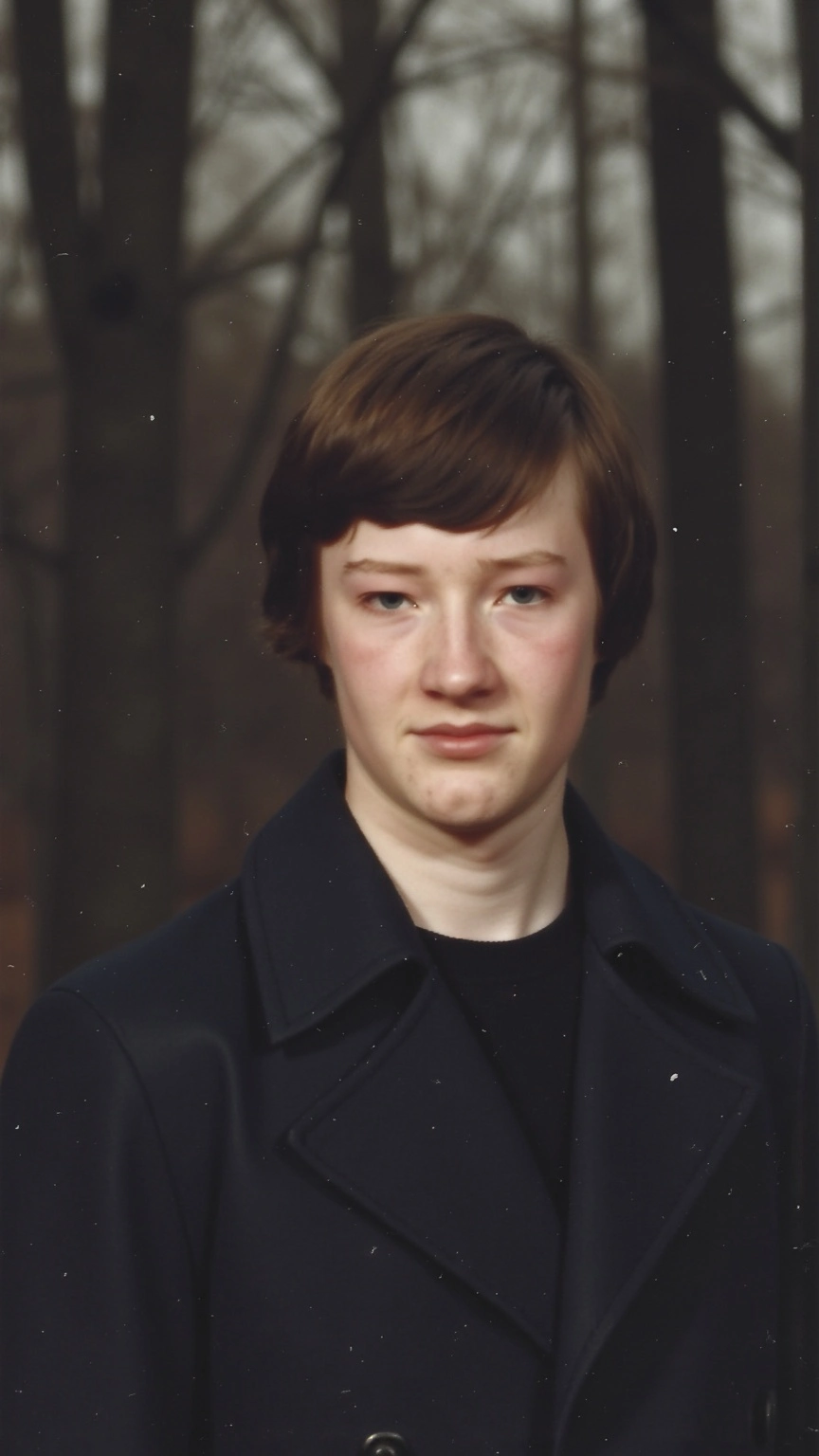




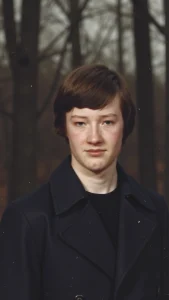






Post Comment
You must be logged in to post a comment.